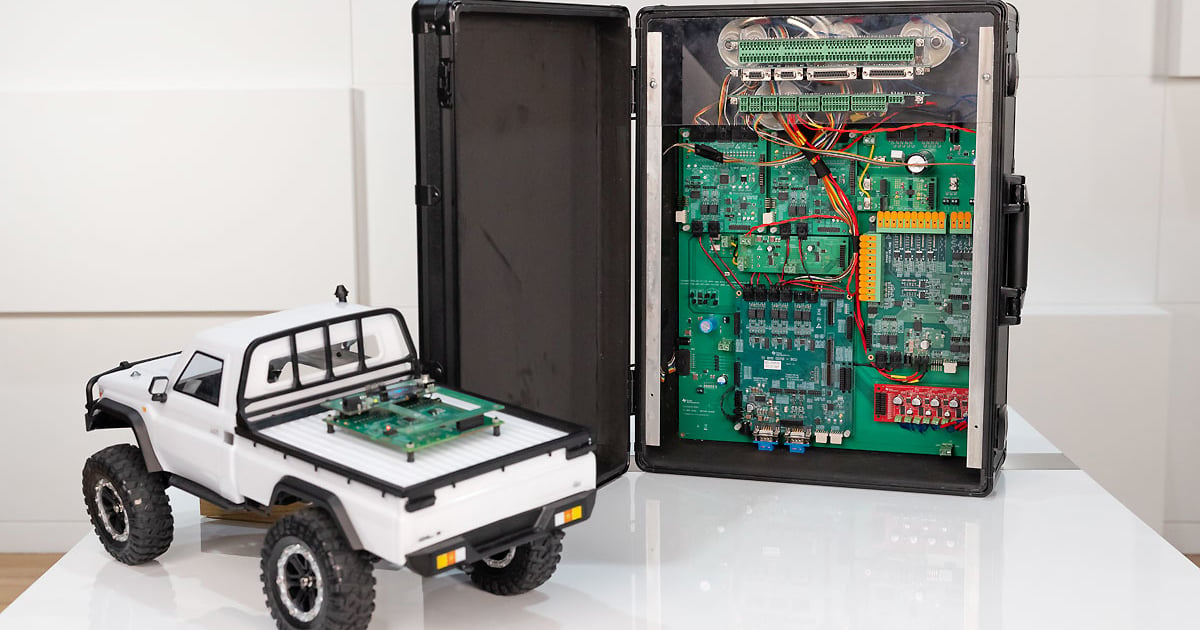
LAS VEGAS — As automakers prepare to bring more electric models to market, the infrastructure to support them will continue to develop.
That was evident from all of the companies that specialize in charging infrastructure and batteries that were demonstrating new capabilities at CES meant to increase consumers’ adoption of battery-electric vehicles.
Charging infrastructure so far has come from multiple companies with varying business models. But there is not a lot of consistency yet among the different models, said Stephanie Brinley, associate director, auto intelligence for S&P Global Mobility.
“We don’t really have a solid set of standards yet, and that’s one of the things that needs to evolve,” she said.
CES gives companies a chance to highlight their new products for potential customers, Brinley said. Here is a sampling of some of the electrification technology on display at the show.
Texas Instruments showed automotive battery cell and battery pack monitors intended to improve the accuracy of battery health and status measurements. That could lead to maximizing range and improving vehicle affordability by reducing the size and cost of battery packs.
More precise assessments of EV batteries’ voltage, current and temperature means the vehicles can, in turn, more accurately provide the current range, the company said. That could give consumers more trust in the battery and ultimately get them to consider EVs.
To produce an EV with a 300-mile range, the company said manufacturers are building extra capacity into battery packs. That’s because weather and driving conditions can significantly affect range.
More accurate monitoring means automakers wouldn’t need to build in extra capacity to achieve the range they’re promising, said Fern Yoon, director of automotive systems for Texas Instruments.
“With increased accuracy, they’re going to be able to tighten that significantly,” Yoon said.
Blink Charging’s Vision charging station will host advertising on a 55-inch LCD screen.
Blink, which owns and operates its charging equipment and also sells the hardware to business customers, said the Level 2 charger enables two vehicles to charge at once and allows both static and dynamic advertising.
“It allows locations that have a lot of visibility to monetize those locations with advertising above and beyond charging revenues,” CEO Michael Farkas said.
The company could link third-party advertisers with the Vision charging station, Farkas said, but a business or organization also could provide its own advertising. If the charger was installed at a shopping mall, for instance, the mall owner could allow retail tenants to advertise.
“It’s great for curbside parking, it’s great for in front of the retail shopping centers and so on, because it’s going to get a lot of foot traffic,” Blink Chief Technology Officer Harjinder Bhade said.
Dutch company EVBox is bringing a DC fast charging station, Troniq Modular, to the U.S. this year. It provides up to 240 kilowatts of capacity and is capable of charging two vehicles simultaneously. It has been in the market in Europe and now will make its U.S. debut, said James Fox, senior vice president of North America for EVBox.
EVBox will make the Troniq Modular at a factory in Libertyville, Ill.
The company wants to have more than 1 million charge points globally by 2025, Fox said. Today, there are more than 400,000. North America will be a key part of reaching that goal, he said.
“The opportunity in North America is pretty much endless, with the Biden administration passing the recent infrastructure bill and funding associated to it,” Fox said. “We’re excited to tap in and be one of the potential partners and players in this market, to really grow and expand the charging infrastructure across the U.S. and Canada.”
Lynkwell provides an electric vehicle charging integration platform that offers businesses, retailers and other organizations the ability to launch their own branded charging networks.
The Lynkwell system comes with charging equipment as well as a software platform that enables the ability to set up user payment systems, among other things. Lynkwell also helps companies access funding for charging projects, CEO Schuyler Poukish said. He added that Lynkwell provides a ready-made system that can offer connectivity and customization, and it can speed up the time to market.
“We provide this very scalable, [application programming interface]-first-driven software so that anybody can launch a charging network,” Poukish said.
Lynkwell came to CES with the goal of sharing its name and story with the industry. The company was started about a year ago. Before now, Lynkwell had been working on its system in the background, Poukish said.
“We’re finally taking a step out into the open into the industry and saying, ‘We have this, and we can do this,’ ” he said.